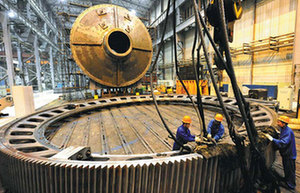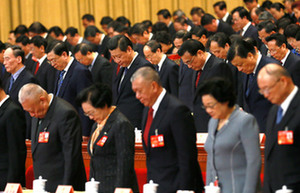DIALOGUE 3
Xinhua: In the view of some analysts, urbanization will become an important catalyst for the Chinese economy's transformation from an investment-driven growth model to a re-balanced domestic consumption-driven approach. What do you think of China's reform on urbanization and rural migrant population's transformation into urban inhabitants?
David Denoon, director of the Center on U.S.-China Relations at New York University, said China plans to create big mega cities "that are even larger than the current cities."
"But the problem of that is then you also have other urban difficulties, like pollution, water, air and so on," he said. "And also many people who migrate into cities are not able to adjust."
The United States also had similar problems in the past, Denoon said.
"Chinese leadership should have a very clear plan before they start moving hundreds and millions of people to a new location," he added.
Paulo Wrobel a research fellow with the BRICS Policy Center in Brazil, said urbanization is a general trend for the development of developing countries.
But the process of urbanization went too far in Brazil and resulted in many problems, he said.
China should take precautions during the process and work out relevant policies in accordance to its own conditions, Wrobel added.
DIALOGUE 4
Xinhua: The Chinese economy grew 7.7 percent in 2013, the lowest level since 1999. Do you think the Chinese economy has entered a stage of medium growth after high-speed development?
Sarquis Ramirez, a professor of international relations at the Monterrey Institute of Technology and Higher Education of Mexico, said China has achieved remarkable development in the past three decades.
He said that despite a stable economic growth in recent years, China's economic policies lack transparency and its reforms are not complete.
"The slowdown of the economic growth resulted from economic restructuring. China's healthy development through reform will benefit the region and the whole world," Ramirez said.
Steven Barnett, a division chief in the Asia and Pacific Department of the International Monetary Fund, said that in the long run, the Chinese economy was estimated to grow at an average rate of about 6 percent in the next 15 years.
"This is consistent not only with China's economy, how reforms will generate sustainable growth, but also consistent with the international experience," Barnett said.
He added that in the near term, the priority should be implementing these reforms, which will generate productivity and sustain the growth.
"So we would like to say that the reform package together will move China to a more inclusive, green and sustainable growth," Barnett said.
Read more:
|
 |
 |
